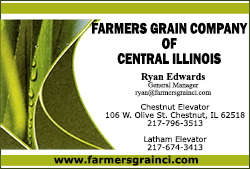Plant-based food industry fights EU proposal to ban dairy comparisons
 Send a link to a friend
Send a link to a friend
 [April 20, 2021] By
Victoria Waldersee [April 20, 2021] By
Victoria Waldersee
LISBON (Reuters) - A new rule banning food
companies from comparing plant-based products to dairy in their
marketing could be agreed by European Union negotiators this week,
despite protests from firms including Danone, Nestle and Unilever.
Products like Nestle's Nescafe Almond Latte, described on the package as
a 'delicious alternative to dairy', or Danone's Alpro 'plant-based
alternative to Greek-style yogurt' would need new slogans, lawyers said.
Even the package design of a soy drink resembling a milk carton could be
construed as an 'evocation' of milk products and thus banned, they said.
"It would be almost impossible to communicate about plant-based
products," Siska Pottie, head of the European Alliance for Plant-Based
Foods, told Reuters.

"Saying a product had half the carbon emission of butter could be
forbidden. Even 'lactose-free' might not be allowed... it's madness."
The draft legislation, Amendment 171, gained the support of the European
parliament last October with 54% of MEPS in favour, even in the same
voting round that overturned a proposed EU ban on the term 'veggie
burger'.
It now needs approval from EU member states and parliament, who will
discuss it this week along with the Commission. If eventually signed
off, the law would be rolled out across the bloc's 27 member states.
A Commission representative confirmed that the amendment would be
discussed in negotiations this week, but said it could not pre-empt the
outcome.
CONSCIOUS CHOICE
Existing EU regulation prohibits plant-based products from being called
names like 'vegan yoghurt' or 'almond milk', and representatives for
Danone, Nestle and Unilever told Reuters they did not see a need for
further restrictions on labelling.
"This is unjust discrimination towards plant-based products," said
Danone's head of regulatory in Iberia, Pedro Neves, adding that
overhauling plant-based product branding would carry a high cost for
companies.
Critics say the amendment goes against the commitment outlined in
Europe's climate strategy to move consumers towards more plant-based
diets, and is caving to pressure from Europe's dairy industry, which has
the largest production of milk relative to population size among the
G20.
[to top of second column] |

Cows are seen on a meadow in front of a Nestle plant in Konolfingen,
Switzerland September 28, 2020. REUTERS/Arnd Wiegmann

"We are in a race against the climate clock. To introduce legislative barriers
at a point when science shows how important it is to shift towards plant-based
diets is absurd," said Cecilia McAleavy, public affairs director at Swedish
plant-based product maker Oatly.
While dairy producers in countries like Australia and the United States are
lobbying for the same rule, courts in those countries have largely overruled
their proposals as long as product names included a qualifier like
'plant-based'.
Europe's Dairy Association argues that labels comparing products to dairy
confuse the consumer, and that the plant-based food industry is blurring the
lines between product types.
"The term 'cheese substitute' misleads consumers' capacities to choose
consciously. This so-called 'substitute' clearly differs from real cheese... it
is simply a different product," its secretary-general Alexander Anton told
Reuters.
But studies by the European Consumer Organisation on consumer understanding of
'meaty' names for vegan alternatives and surveys in Portugal and Spain on
perception of dairy alternatives indicate most consumers do not find such
comparisons confusing.
"Descriptive terms such as 'dairy alternative' help consumers understand the
characteristics of the product, facilitating more sustainable choices," a
Unilever spokeswoman said.

Across Europe, plant-based product sales, currently at 3 billion euros ($3.62
billion), are projected to rise to 5 billion by 2025, according to ING Research
– still just 4.1% of dairy sales. Plant-based drinks have the strongest
foothold, with 10% of the market for milk.
(Reporting by Victoria Waldersee; Additional reporting by Kate Abnett; Editing
by Jan Harvey)
[© 2021 Thomson Reuters. All rights
reserved.] Copyright 2021 Reuters. All rights reserved. This material may not be published,
broadcast, rewritten or redistributed.
Thompson Reuters is solely responsible for this content. |